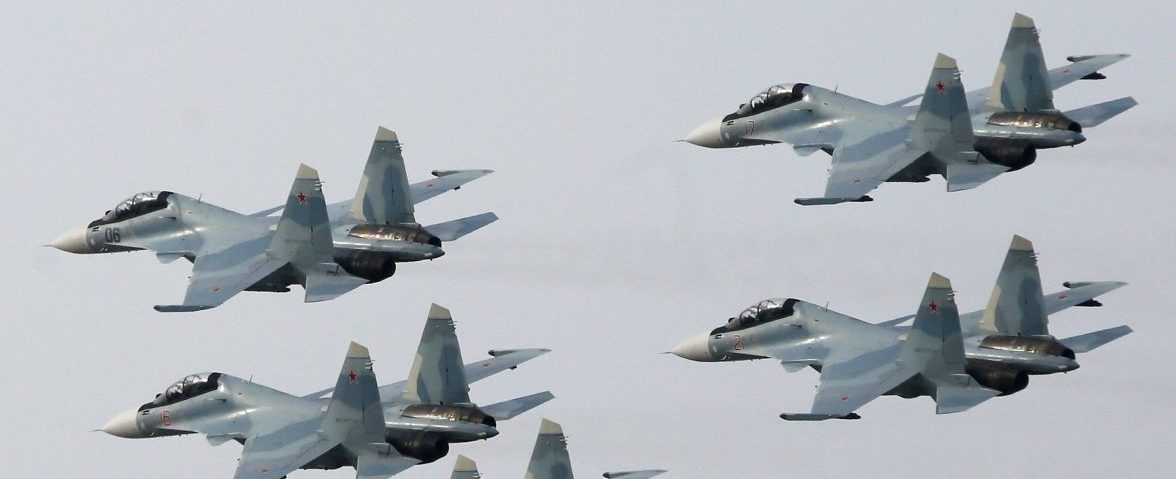Uncertainty has become the norm in modern international relations. States have to respond to a rapidly changing, unpredictable situation, and they are taking demonstratively aggressive actions to show that they are ready to react to any sudden developments or attacks by hostile forces whoever they might be. Out of this rush and muddle comes “geopolitical acceleration,” the new state of the world, which will last until the moment when some pivotal process begins that will enable the leading powers to form a consensus.
There are several long-term trends making the existing system looser and more muddled. These include the rise of Asian countries, primarily India and China, the disorganization of the Western system that took shape after the Cold War, and the emergence of a polycentric world based on an increased autonomy of a growing number of states. These trends are progressing against the background of accelerated technological progress and climate change that are affecting everyone. The great variety of critical, mutually reinforcing trends makes it impossible to define the epoch with just one key word.
In the face of geopolitical acceleration, provocations are acquiring a new importance as a means of competition between countries. The aims of provocations may vary. For example, the Ukrainian government is using provocations to put the Ukrainian crisis back to the world agenda. Kiev is afraid that the unsatisfactory state of reforms in Ukraine will “fatigue” the West. The Ukrainian authorities are only too willing to resurrect the idea of “Russian aggression” by staging provocations like real or faked killings, acts of sabotage in Donbass, ship maneuvers in the Kerch Strait, and others. If all these provocations have any meaning at all, it is to achieve a media effect rather than change the strategic balance. And here the Ukrainian government has proved its ingenuity.
Western countries are also eager to exploit the “Russian threat.” In the US, for example, it is a staple of domestic politics. The attempts to blame Russia for anything and everything are a consequence of internal crises amplified by Trump’s shocking win. This has created an image of Russia as a totally efficient, sophisticated and aggressive actor bent on regime change in Western countries. The position of Russia itself is immaterial in this context because this subject is sure to remain a source of pain for the US establishment until at least the next presidential election.
On the other hand, the greater frequency of provocations means that a big war is unlikely, for most states realize that war will only aggravate antagonisms rather than resolve them. In the current environment, any big war will be so disastrous that it will assuredly bury any hope of attaining political goals. This realization suggests that strategic rivalry is safer if translated into more localized forms of provocation.
It is also groundless to compare the present situation with the Cold War. All that is happening in the world cannot be explained solely by the US-Russia confrontation. Rivalry is in full swing between many power centers, among them the US and China, the US and Germany, the US and Turkey, India and Pakistan, India and China, Iran and Saudi Arabia, and so on. The multiplicity of these confrontations prevents us from isolating any single pivotal process.
For Russia, geopolitical acceleration presents both new challenges and new opportunities. The rise of the Asian power centers mostly meets Moscow’s interests. Russia has a lengthy shared border with China; Korea and Japan are located nearby. The global center of economic power is shifting to this region and Russia, by dint of its shared border, can play an active role in the process. But as the pole of world power edges towards Asia, this will inevitably deepen a number of international divides, although Russia’s involvement in these will be less significant than in European security issues. In this case, it can play a balancing role or mediate between opposing sides.
The continuing disorganization of the Western system will leave the “Russian threat” a fixture in European and US political rhetoric for a long time. New provocations will sustain the black-and-white view of countries as either “bad” or “good”. Western elites are still not used to a situation where the uncertainty and heterogeneity of the world renders both international and domestic politics, including electoral preferences, unexplainable.
Russian-US relations will remain inconsistent. A portion of the US elites will continue nurturing profound distrust of Russia for its “meddling” in US affairs and insist on tougher sanctions to make Moscow refrain from this sort of interference in the future. At the same time, politicians in Washington do not wish to see Russia in the camp of America’s rivals and as far as possible will seek to contain the most aggressive impulses of their bellicose colleagues.
Finally, the increasing strategic autonomy of a growing number of states will call for carefully considered and delicate steps in Russian diplomacy. The latest Russian-Turkish crisis is a case in point. Russia’s expectation that Turkey would be a traditional NATO country committed to restraint has been upended. Unexpectedly for everyone, Ankara has shown itself to be a strategically autonomous, independent power center capable of actions that threaten a major regional war.
While global acceleration is a reality, the current international situation is stable and there are no grounds for a global clash. But this does not mean that militaries are not preparing for a potential war. On the contrary, it is their mission to do so because military force remains essential to safeguarding sovereignty. But all of us live in an interconnected world and are beneficiaries of globalization: from year to year, our world is safer and more stable. The transition from military operations to provocations in strategic rivalry can be regarded as a step in the direction of humanization. Unlike real wars, media wars will remain mostly on the TV screen.
Original publication valdaiclub.com












